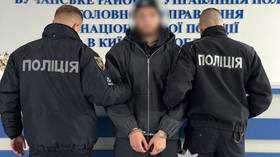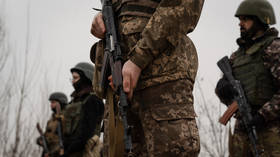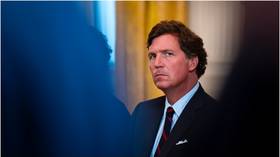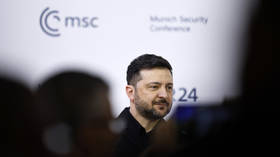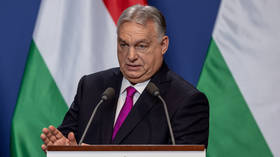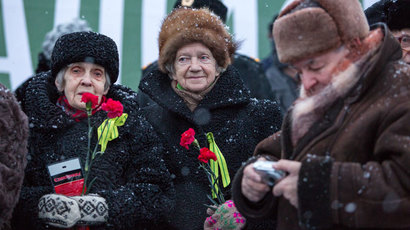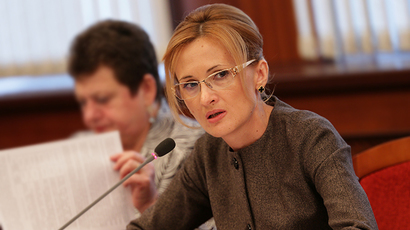Russian TV channel struggles to remain open after controversial WWII poll scandal
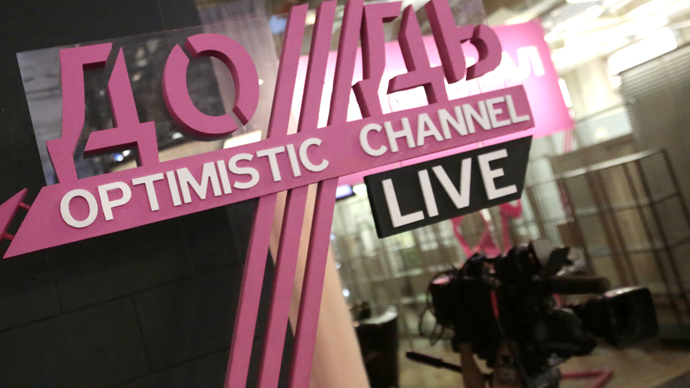
The independent TV channel, Dozhd (‘Rain’), has announced it will remain open after a scandal over a WWII poll published on its website. The poll triggered a huge and angry response, with major cable TV providers refusing Dozhd’s services.
The channel has announced that it will offer a free signal until the end of 2014 for all cable TV providers. So far, none of the operators have taken Dozhd up on its offer.
Currently, 252 out of 273 cable TV providers are continuing to work with Dozhd, but the major ones have turned it off, leaving an audience reach of only 15 percent, the channel’s representatives told a press conference on Tuesday.
State-controlled telecoms giant, Rostelecom, said on Tuesday that it isn’t ruling out the possibility of talks on cooperation with Dozhd, but only after the channel’s “reputation is restored.”
Cable TV providers started dropping Dozhd after a controversial poll was posted on the channel’s website on January 26: the eve of the 70th anniversary of the lifting of the Nazi blockade on Leningrad (now St. Petersburg).
The viewers were asked the question if Leningrad “should have given in to the Nazis to save hundreds of thousands of lives.”
The poll triggered a huge online and offline uproar, with many bitterly criticizing Dozhd, with St. Petersburg’s legislative assembly demanding its closure. Others, however, are trying to protect the channel.

The channel quickly removed the poll and apologized, but, as the channel’s general director, Natalia Sindeeva, put it, “we have all agreed that the question about the blockade was formulated in an incorrect way. There was no problem with the question being asked, but its form was a mistake.”
MP Irina Yarovaya of the ruling United Russia party said she viewed the poll as an attempt to rehabilitate Nazism.
“These things all look equally disgusting – the parades of Ukrainian neo-Nazis, the demolition of monuments to war heroes and the sly, fake and counterfeit polls,” Yarovaya said earlier in a comment published on the party’s website. “And every time the same thing is behind these actions – the justification of Nazi crimes and the desecration of historical memory.”
A WWII veteran, President of the Academy of Military Sciences Makhmut Gareyev, said that the authors of the poll demonstrated their ignorance of history, as the proposed choice never existed: Hitler ordered his troops to completely destroy Moscow and Leningrad and eliminate the populations of these cities.
“If Leningrad was handed over everyone would have been killed. In reality, at least some of the residents survived,” the historian noted.
The liberal opposition Yabloko party called the poll “tactless and inappropriate.” However, that can only be framed as a moral and ethical judgment and can’t imply any judicial or administrative measures, they added. “The tactless action cannot give grounds for repressive measures, limitations to freedom of speech or any political pressure on mass media,” the party said earlier in a statement on its website.
Presidential press-secretary, Dmitry Peskov, voiced a similar opinion, saying that it is a moral and ethical issue. In his personal opinion, the channel “crossed a red line.”He went on to say “I’m not a judge, but I know of no laws that could have been violated by such actions.”
A petition against the disconnection of the independent channel has been posted by activists on the change.org website. The document, which has been signed by over 43,000 people, asks the Mass Communication Ministry and Russia’s Association of Cable TV not to allow “the closure and persecution” of the channel.
As passions continue to run high over the scandal, rights advocates have put another aspect of the situation in the spotlight: the very legality of disconnecting Dozhd from networks by cable TV providers.

Vladimir Lukin, Russian Human Rights Ombudsman and Mikhail Fedotov, the head of the presidential Council on Human Rights, suspect there could be a monopolist agreement between the operators and believe prosecutors should check the situation, and, if the law was violated, open a criminal case.
The Federal Antimonopoly Committee said on Tuesday that it had received a request from the council and will make its decision within 30 days as to whether there was collusion between operators, reported RIA Novosti citing a source at the body.
The Prosecutor General’s Office is to check whether the TV channel violated the law by publishing its poll and if there were any violations by TV providers.
Struggle for survival
Natalia Sindeeva said at the press conference on Tuesday that they had “no intention of shutting down the channel, but had nothing to live upon now.”
“We’re not planning to change anything for the moment,” she said, adding that they will neither change their routine nor the number of staff. Only the channel’s commercial department will be “slightly redirected.” To make a living, Dozhd will publish more adverts on its website, and will also consider broadcasting through other platforms, such as smart-TV, the channel’s head explained.“We planned to do so anyway, but will fast track that now,” Sindeeva said.
Meanwhile, the scandal around the TV channel has prompted an increase in its online shop purchases.
Seeking to stay afloat financially, the channel offered viewers on its website an annual subscription for 1000 rubles (around $US 30). Subscriptions to Dozhd have more than doubled and its internet audience has shot up three times since the scandal, the channel’s representatives said.


